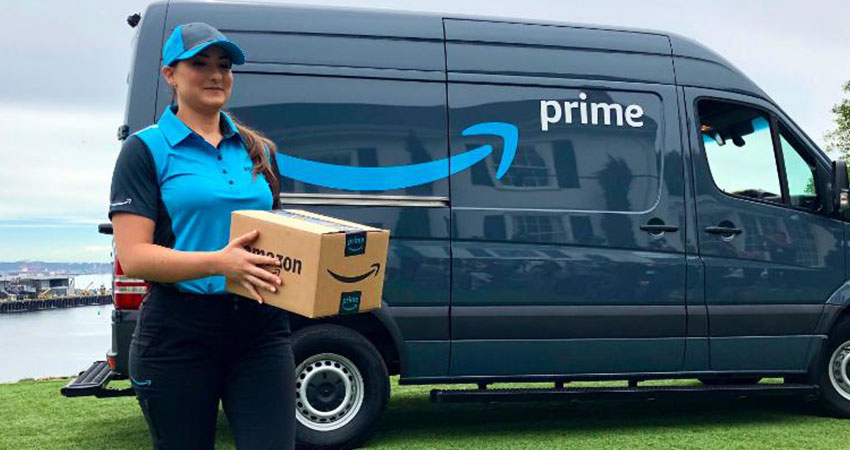A California regulatory agency has fined Amazon and one of its delivery contractors $6.4 million for alleged wage theft violations between April 2018 and January 2020, saying drivers were not paid properly on long shifts and often had to miss meals.
The investigation by the California Department of Industrial Relations, which began in June 2019, cited Amazon and Green Messengers, a contracted courier service based in Santa Ana, CA for various wage and work violations. Both companies are appealing the ruling.
“Contracting out services does not release employers from their duty to ensure workers are being legally compensated,” said California Labor Commissioner Lilia García-Brower in a statement. “In this case, both Green Messengers and Amazon.com Services are responsible for the wage theft that these workers suffered.”
The citations total $6.4 million, with $5.3 million owed to 718 drivers. The latter amount includes $3.4 million in liquidated damages and waiting time penalties, $763,000 in penalty assessments for not providing proper wage statements, $883,000 for split shift, meal and rest break premiums and $281,000 for minimum wage, overtime and contract wages.
“The California Labor Commissioner is investigating an independent business we previously partnered with,” said Amazon spokesperson Leah Seay. “We were not aware of the investigation and are appealing the citation.”
According to the agency, workers paid less than minimum wage are entitled to liquidated damages equal to the amount of underpaid minimum wages plus interest. Waiting time penalties are imposed when a company intentionally fails to pay all wages due at the time of separation. It’s calculated by multiplying daily pay rate by the number of days a worker was unpaid, up to a maximum of 30 days.
Green Messengers was assessed $1.1 million in fines for the civil penalties.
During the period under investigation, the agency alleges, drivers scheduled to work 10-hour workdays often had to work through meal and rest breaks due to the volume of delivery stops, and were not paid properly for shifts that went 11 hours or more.
While in other states Amazon would not have the same level of liability, which normally falls to its contractors, California changed its law in 2015 to make the company hiring contractors liable for violations, penalties and fines as well.
California is home to AB5, a 2020 law that required companies to provide employee-like benefits to gig workers, if specific criteria were met. A California proposition that passed in November created additional carve-outs for contractor-dependent companies including Uber, Lyft and DoorDash, who had lobbied heavily for it, spending millions.
Amazon’s labor woes seem to be mounting. A union vote has begun at an Amazon fulfillment center in Alabama – a right-to-work state – despite Amazon’s attempts to delay it. It will have major ramifications for the company and the industry if passed. The Washington Post, via Business Insider, reports that more than 1,000 Amazon workers in other places have contacted the union seeking certification in Alabama, asking about representation.
The concept of right-to-work, in place in 27 states, is under threat from the PRO act, a Democrat-sponsored bill now under consideration in Congress.

